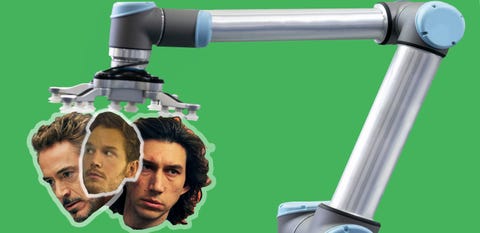Please Leave AI Out of the Movie Business – Popular Mechanics

Getty/Disney/Staff Illustration
Waterworld. Ishtar. Gigli. Cats. Hollywood history is littered with multi-million dollar flops like these, and countless others, that killed careers, sank studios, and drove (admittedly tiny) audiences away disgusted.
On Wednesday, Warner Brothers, the studio that released bombs last year called The Kitchen and The Goldfinch that you’ve never heard of for a reason, announced a partnership with a Los Angeles-based company called Cinelytic that will ideally prevent such bombs from ever carrying the iconic WB logo.
The deal will allow the studio’s executives to use Cinelytic’s predictive technology to make decisions about a film’s casting, production, marketing, distribution, and more.
In other words, Warner Brothers wants to prevent really, really bad movies from being made by automating the process of making movies, and … it’s a really, really bad idea.
In With Data, Out with Intuition
Cinelytic’s cofounder and CEO, Tobias Queisser, has spoken at length to various outlets about how his company and its technology is not designed to replace creativity as the primary driver when it comes to actually greenlighting a project.
Last year, Queisser told Screen Daily, “We don’t touch the creative part. That has to stay human. We only help with the business case. Greenlighting a film is always a creative decision. But we want to bring the ‘gut’ part of the decision down to 60 [percent].”
That doesn’t sound so bad, right? If we’re talking an analytics platform that will help studios decide something like where, when, and even how a film should be released to get the most bang for its backers’ buck, that’s both understandable and smart.
But saying “Yes” or “No” to the existence of a film project isn’t the end of the creative process—it’s the beginning. Casting is a huge part of making a film that AI can potentially disrupt in a way that whitewashes movies, brands performers who have appeared in a box office disappointment or two with a scarlet letter, and makes it difficult for unproven talent to break out.
Take Star Wars—a colossal risk when 20th Century Fox gave it the green light in 1974. At that point, neither Mark Hamill nor Carrie Fisher had ever appeared in a film before, and Harrison Ford only had a few credits to his name. Would an automated system have recommended these actors for the eventually beloved parts of Luke Skywalker, Princess Leia, or Han Solo, respectively? Would the company’s executives at the time even have listened?
Just last year, Warner Bros. decided to remake A Star Is Born, which already had many classic iterations. Would AI have been able to appropriately predict what Lady Gaga, of all people, would bring to a role previously made famous by Judy Garland and Barbara Streisand without any historical data about her acting to evaluate?
And then there’s this incredibly astute tweet from screenwriter Zack Stentz (Thor, X-Men: First Class), who reminds us that arguably the most successful film franchise ever was based on one enormous bet:
A Paradigm Shift?
At first, the partnership with Cinelytic will be limited to Warner Bros.’ international distribution operations, but all involved sound extremely bullish about where the partnership might go in the coming months and years, as well as where AI can take moviemaking more generally.
“We are very excited to work with Warner Bros. Pictures International, a leader in worldwide content, to bring the power of real-time predictive analytics to content and talent valuation decisions,” Queisser told Deadline this week.
Darcy Antonellis, a former executive at Warner Bros., also released a statement on the partnership. From Deadline:
“Hollywood, she predicted, ‘will undoubtedly increase its use of AI in the creative process’ as 2020 progresses. In the next five to 10 years, she continued, ‘AI will change the way producers and directors approach production realization. While it will never wholly overtake what the creative mind can conjure, AI will help bolster and target that creativity in an impactful and meaningful way.’”
Does this really sound like a limited-in-scope effort, or are we witnessing the beginning of a major Hollywood paradigm shift? If it’s the latter, say goodbye to movies like Joker that lack the bangs and booms of so many other successful titles in its genre. You can probably forget about something like The Matrix, which asked far too many philosophical questions for a sci-fi shoot-em-up. And you can stop searching for the next Inception or Interstellar. They won’t exist. Not enough sequel or merchandising potential.
That may be where we’re heading. Or, to be totally fair, maybe we aren’t. Odds are Warner Bros. will play with its new toy for a while before losing interest. But is the doomsday scenario something any fan of interesting, original, thought-provoking, and exciting as hell cinema wants to entertain?
There may not be much we can do (besides championing good movies with our hard-earned dollars—like these, our best films of 2019.) Studios are going to do what they must to stay afloat, and executives understandably want to keep their corner offices. But if any Hollywood hotshots happen to be reading this, please keep this mind: Movies about robots are awesome. Movies made by robots are going to suck.
Let’s block ads! (Why?)


